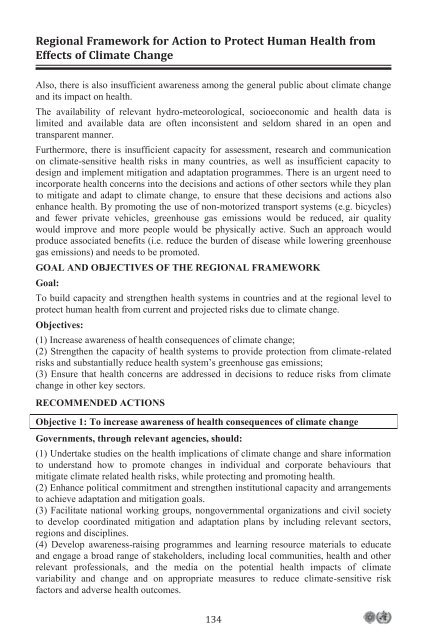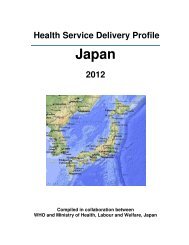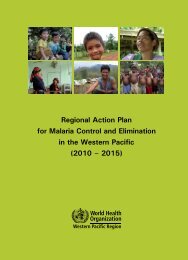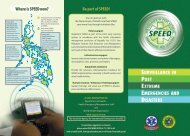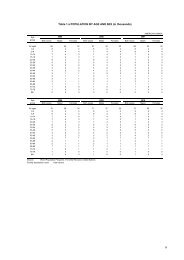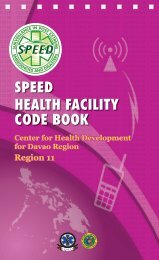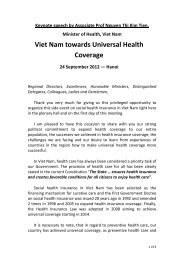Untitled - DOH
Untitled - DOH
Untitled - DOH
- No tags were found...
You also want an ePaper? Increase the reach of your titles
YUMPU automatically turns print PDFs into web optimized ePapers that Google loves.
Regional Framework for Action to Protect Human Health fromEffects of Climate ChangePolicy HandbookAlso, there is also insufficient awareness among the general public about climate changeand its impact on health.The availability of relevant hydro-meteorological, socioeconomic and health data islimited and available data are often inconsistent and seldom shared in an open andtransparent manner.Furthermore, there is insufficient capacity for assessment, research and communicationon climate-sensitive health risks in many countries, as well as insufficient capacity todesign and implement mitigation and adaptation programmes. There is an urgent need toincorporate health concerns into the decisions and actions of other sectors while they planto mitigate and adapt to climate change, to ensure that these decisions and actions alsoenhance health. By promoting the use of non-motorized transport systems (e.g. bicycles)and fewer private vehicles, greenhouse gas emissions would be reduced, air qualitywould improve and more people would be physically active. Such an approach wouldproduce associated benefits (i.e. reduce the burden of disease while lowering greenhousegas emissions) and needs to be promoted.GOAL AND OBJECTIVES OF THE REGIONAL FRAMEWORKGoal:To build capacity and strengthen health systems in countries and at the regional level toprotect human health from current and projected risks due to climate change.Objectives:(1) Increase awareness of health consequences of climate change;(2) Strengthen the capacity of health systems to provide protection from climate-relatedrisks and substantially reduce health system’s greenhouse gas emissions;(3) Ensure that health concerns are addressed in decisions to reduce risks from climatechange in other key sectors.RECOMMENDED ACTIONSObjective 1: To increase awareness of health consequences of climate changeGovernments, through relevant agencies, should:(1) Undertake studies on the health implications of climate change and share informationto understand how to promote changes in individual and corporate behaviours thatmitigate climate related health risks, while protecting and promoting health.(2) Enhance political commitment and strengthen institutional capacity and arrangementsto achieve adaptation and mitigation goals.(3) Facilitate national working groups, nongovernmental organizations and civil societyto develop coordinated mitigation and adaptation plans by including relevant sectors,regions and disciplines.(4) Develop awareness-raising programmes and learning resource materials to educateand engage a broad range of stakeholders, including local communities, health and otherrelevant professionals, and the media on the potential health impacts of climatevariability and change and on appropriate measures to reduce climate-sensitive riskfactors and adverse health outcomes.134134


